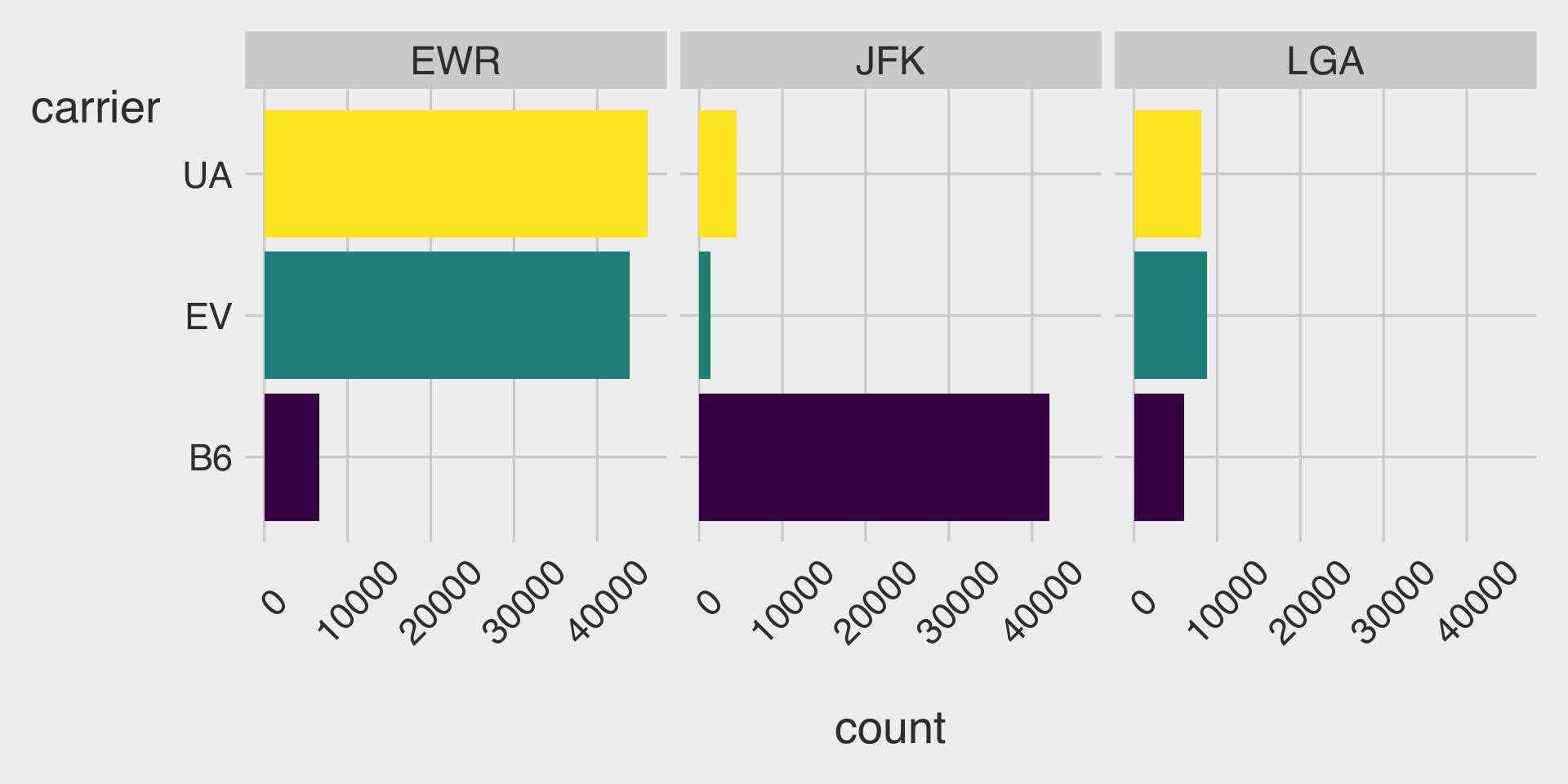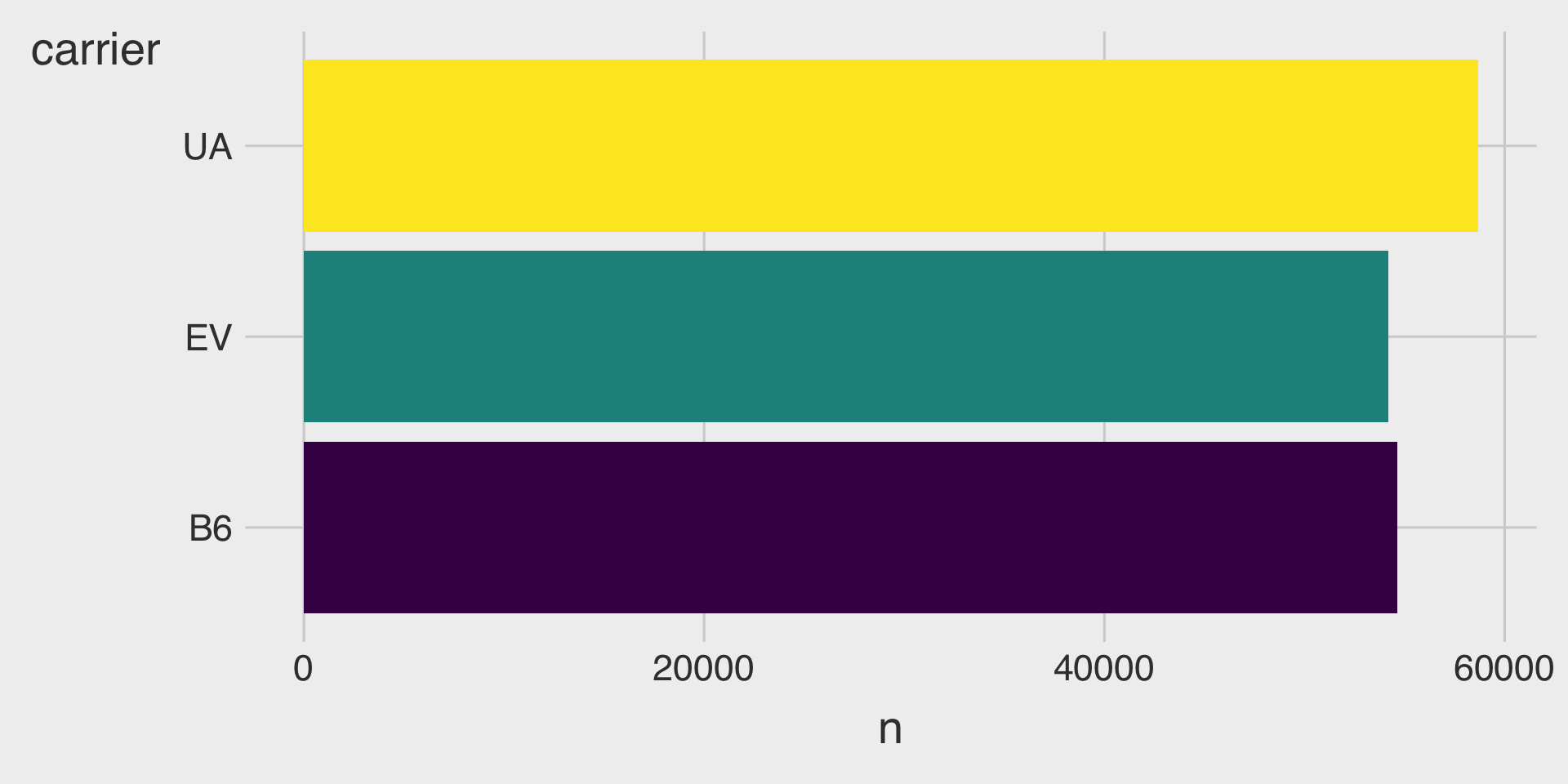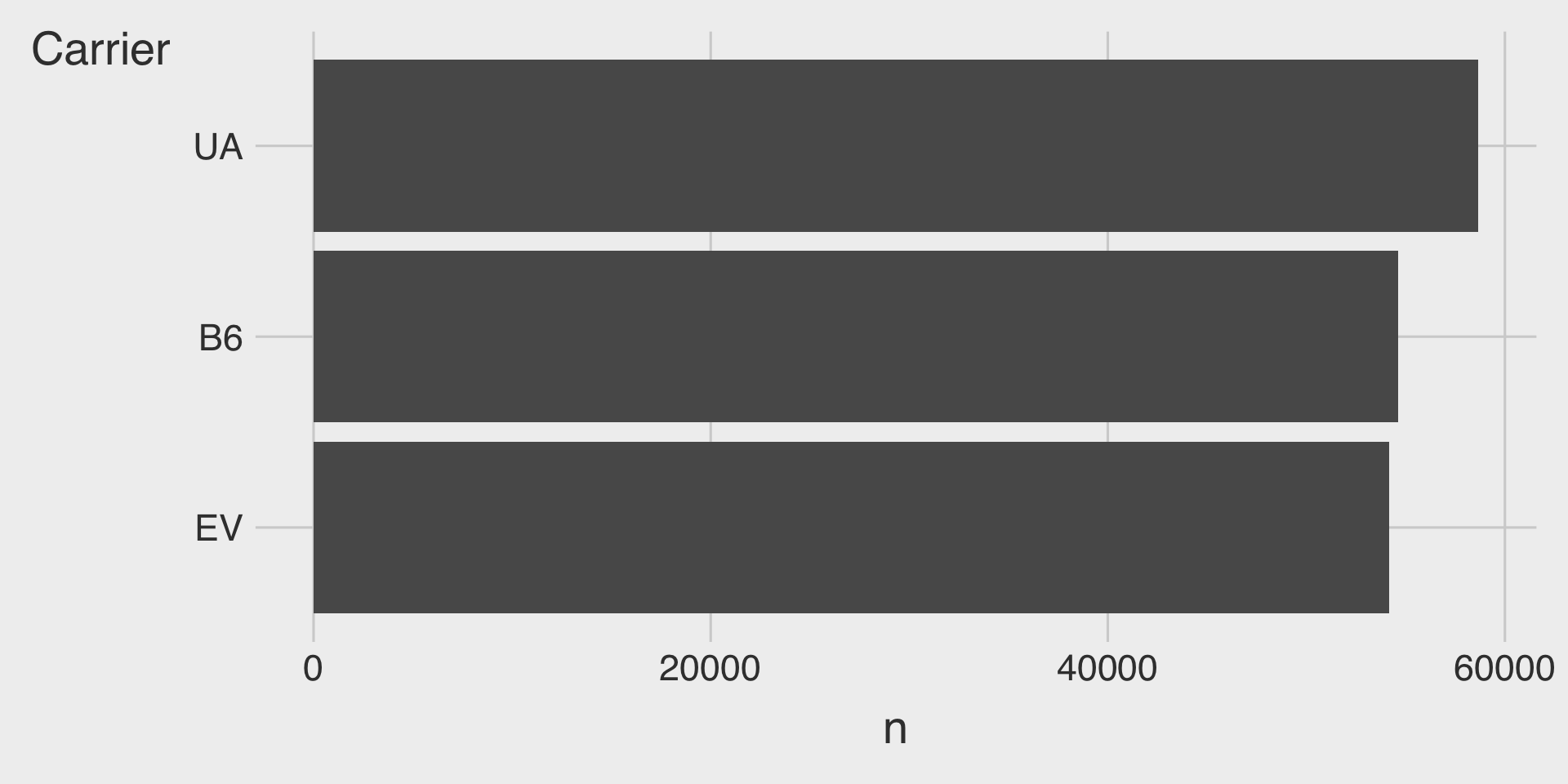# install.packages("ggthemes")
library(ggthemes)
library(tidyverse)
flights <- nycflights13::flightsClasswork 14
Distribution Plots and Counting
R Packages
For Classwork 14, please load the following R packages and create the data.frame nycflights13::flights:
Question 1
🤖 Task: Fill in the blanks in the provided ggplot() code chunk to visualize the distribution of air_time (minutes spent in the air).

ggplot(data = flights,
mapping = aes(__BLANK_1__)) +
geom___BLANK_2__(__BLANK_3__ = 1)Question 2
🤖 Task: Fill in the blanks in the provided ggplot() code chunk to visualize how the distribution of air_time (minutes spent in the air) varies by origin.
Part A. Histograms

ggplot(data = flights,
mapping = aes(__BLANK_1__)) +
geom___BLANK_2__(__BLANK_3__ = 50,
__BLANK_4__ = "lightblue") +
facet_wrap(__BLANK_5__)Part B. Boxplots

ggplot(data = flights,
mapping = aes(__BLANK_1__,
y = __BLANK_2__,
__BLANK_3__,
)) +
geom___BLANK_4__(show.legend = FALSE)Question 3
🤖 Task: Create the data frame top3_n, containing two variables and five observations:
carrier: the top 3 carriers ranked by number of flights
n: the number of flights operated by each of those carriers
__BLANK_1__ <- flights |>
__BLANK_2__ |>
__BLANK_3__( desc(n) ) |>
head(3) # returns the first 3 observations in the given data.frameQuestion 4
🤖 Task: Create the data.frame top3_carriers, containing six variables (month, day, dep_time, carrier, origin, and dest) and all observations for flights operated by only the top 3 carriers identified in Question 3.
__BLANK_1__ <- flights |>
filter(__BLANK_2__) |>
__BLANK_3__(month, day, dep_time, carrier, origin, dest)Question 5
🤖 Task: Fill in the blanks in the provided ggplot() code chunks to visualize the distribution of carrier using the top3_carriers data.frame.
Part A. Bar Charts

ggplot(data = top3_carriers,
mapping = aes(__BLANK_1__,
fill = __BLANK_2__)) +
geom___BLANK_3__(show.legend = FALSE)Part B. Proportion Bar Charts

ggplot(data = top3_carriers,
mapping = aes(__BLANK_1__,
x = __BLANK_2__,
__BLANK_3__ = 1)) +
geom___BLANK_4__(show.legend = FALSE)Question 6
🤖 Task: Fill in the blanks in the provided ggplot() code chunks to visualize how the distribution of carrier varies by origin using the top3_carriers data.frame.
Part A. Stacked Bar Charts

ggplot(data = __BLANK_1__,
mapping = aes(y = __BLANK_2__,
__BLANK_3__)) +
geom_bar()Part B. 100% Stacked Bar Charts

ggplot(data = __BLANK_1__,
mapping = aes(y = __BLANK_2__,
__BLANK_3__)) +
geom_bar(position = __BLANK_4__) +
labs(x = "Proportion") # label x-axis titlePart C. Clustered Bar Charts

ggplot(data = __BLANK_1__,
mapping = aes(y = __BLANK_2__,
__BLANK_3__)) +
geom_bar(position = __BLANK_4__)Part D. Facetted Bar Charts

ggplot(data = __BLANK_1__,
mapping = aes(y = __BLANK_2__,
__BLANK_3__)) +
geom_bar(show.legend = FALSE) +
facet_wrap(__BLANK_4__)Question 7
🤖 Task: Fill in the blanks in the provided ggplot() code chunk to visualize the distribution of carrier using the top3_n data.frame.

ggplot(data = top3_n,
mapping = aes(x = __BLANK_1__,
y = __BLANK_2__,
__BLANK_3__)) +
geom___BLANK_4__(show.legend = FALSE)Question 8
🤖 Task: Fill in the blanks in the provided ggplot() code chunk to visualize the sorted distribution of carrier’ using the top3_n data.frame.

ggplot(data = top3_n,
mapping = aes(x = __BLANK_1__,
y = __BLANK_2__)) +
geom___BLANK_3__() +
labs(y = "Carrier") # label y-axis titleQuestion 9
🤖 Task: Create a data.frame named carrier_per_origin with the following variables:
origin: the origin airport
carrier: the airline carrier
n: the number of flights operated by each carrier from each origin airport
The carrier_per_origin data.frame should contain the count of flights for every carrier–origin combination.
carrier_per_origin <- flights |>
__BLANK__ |>
arrange(origin, -n)